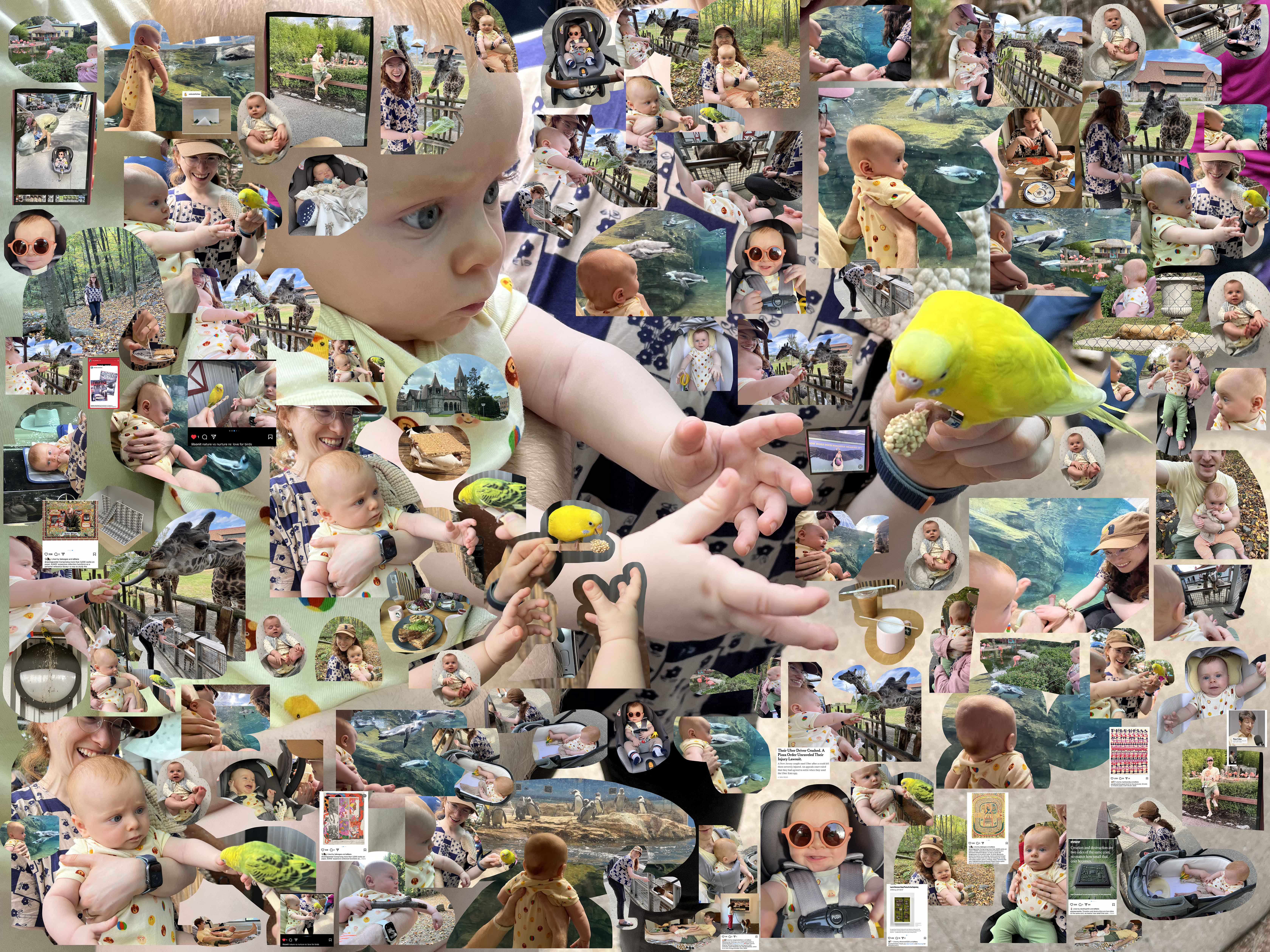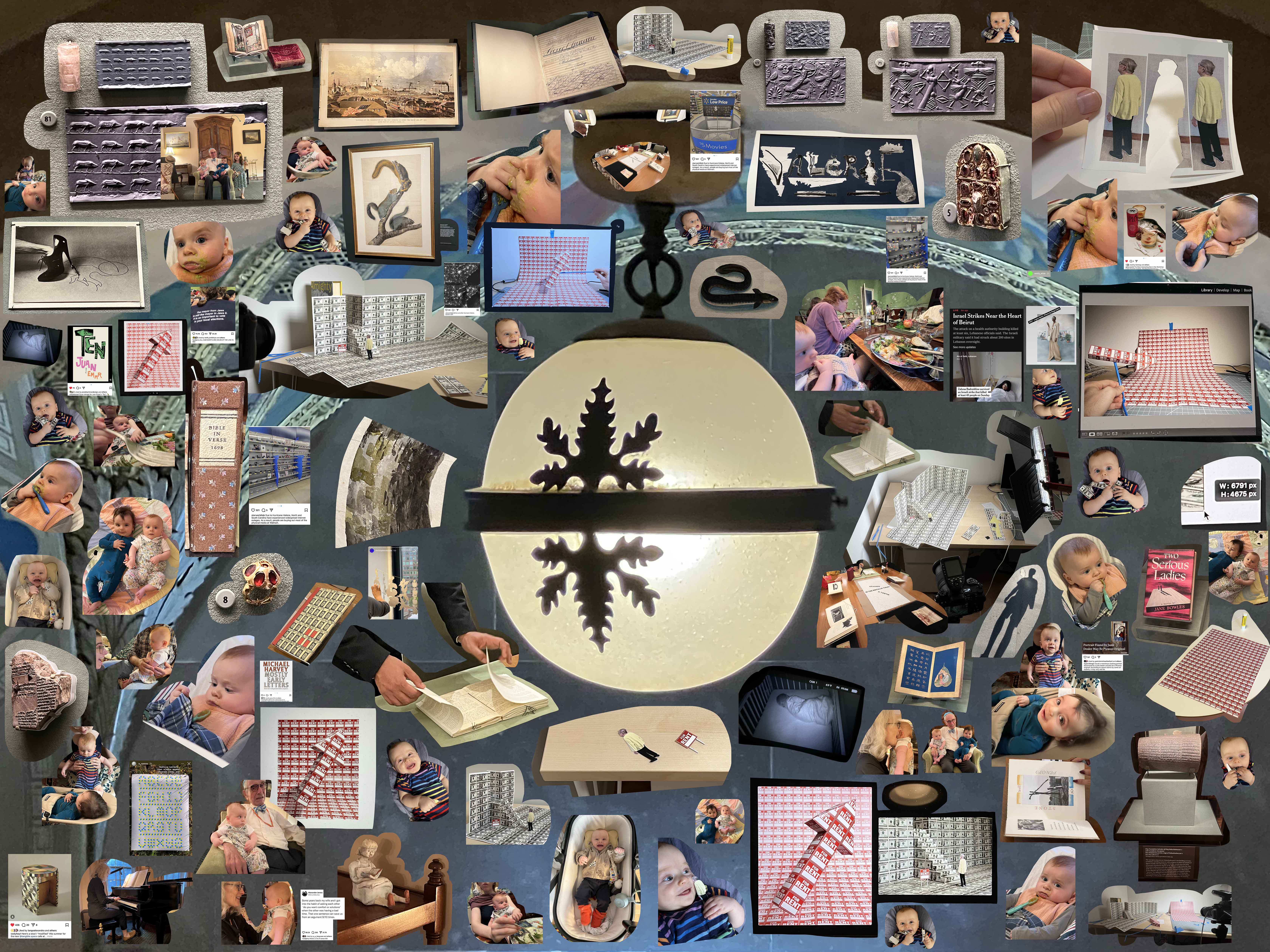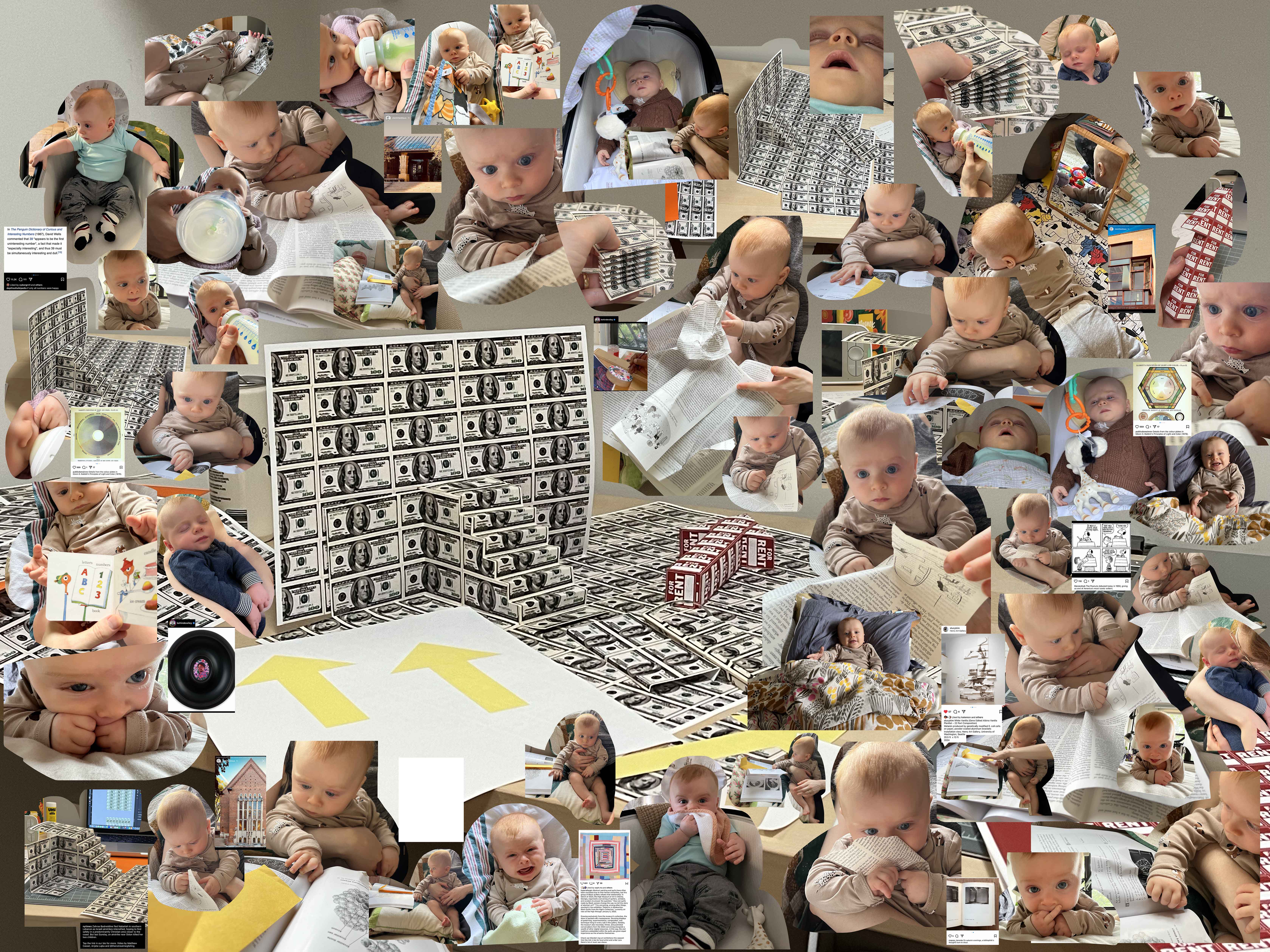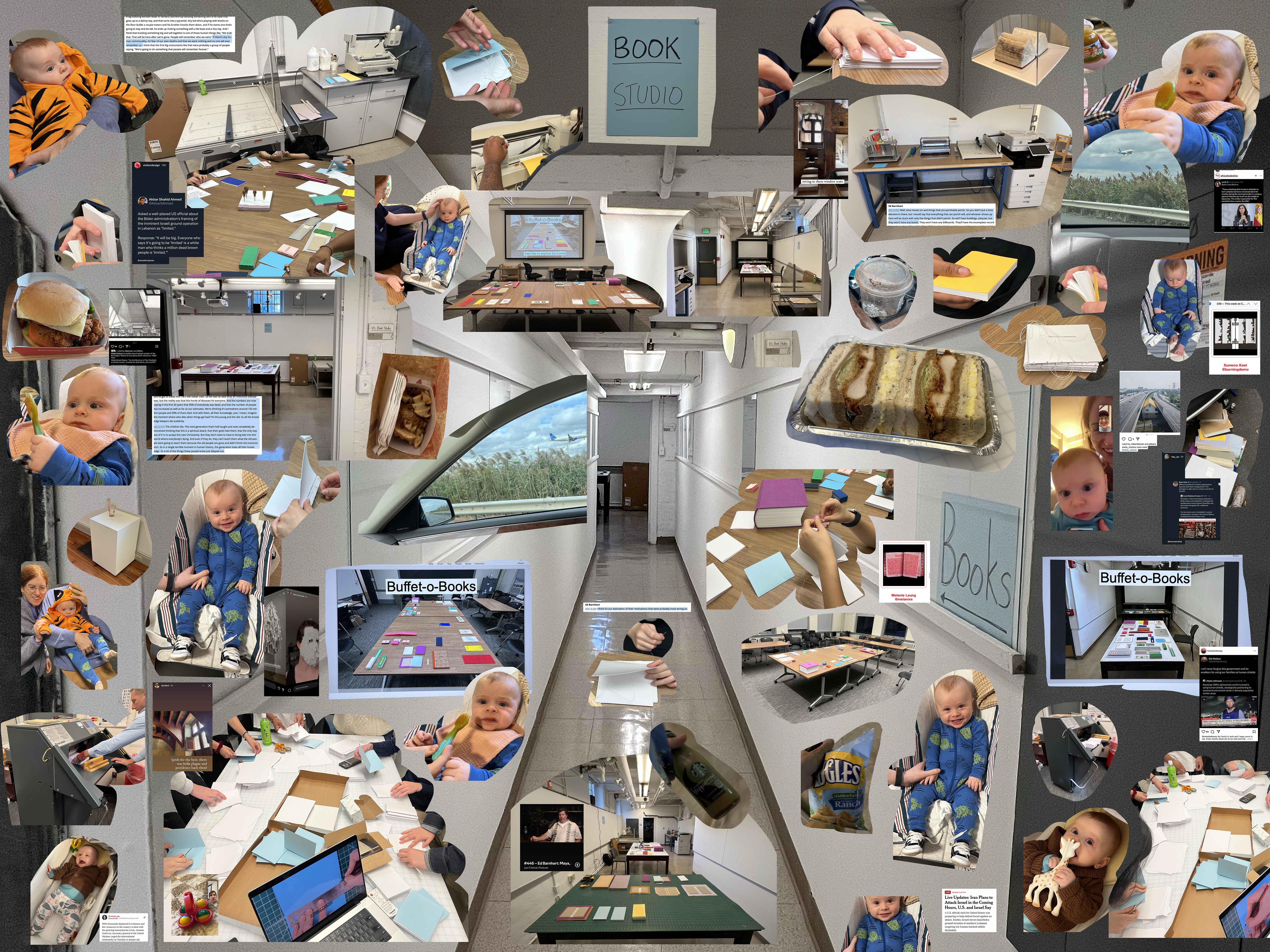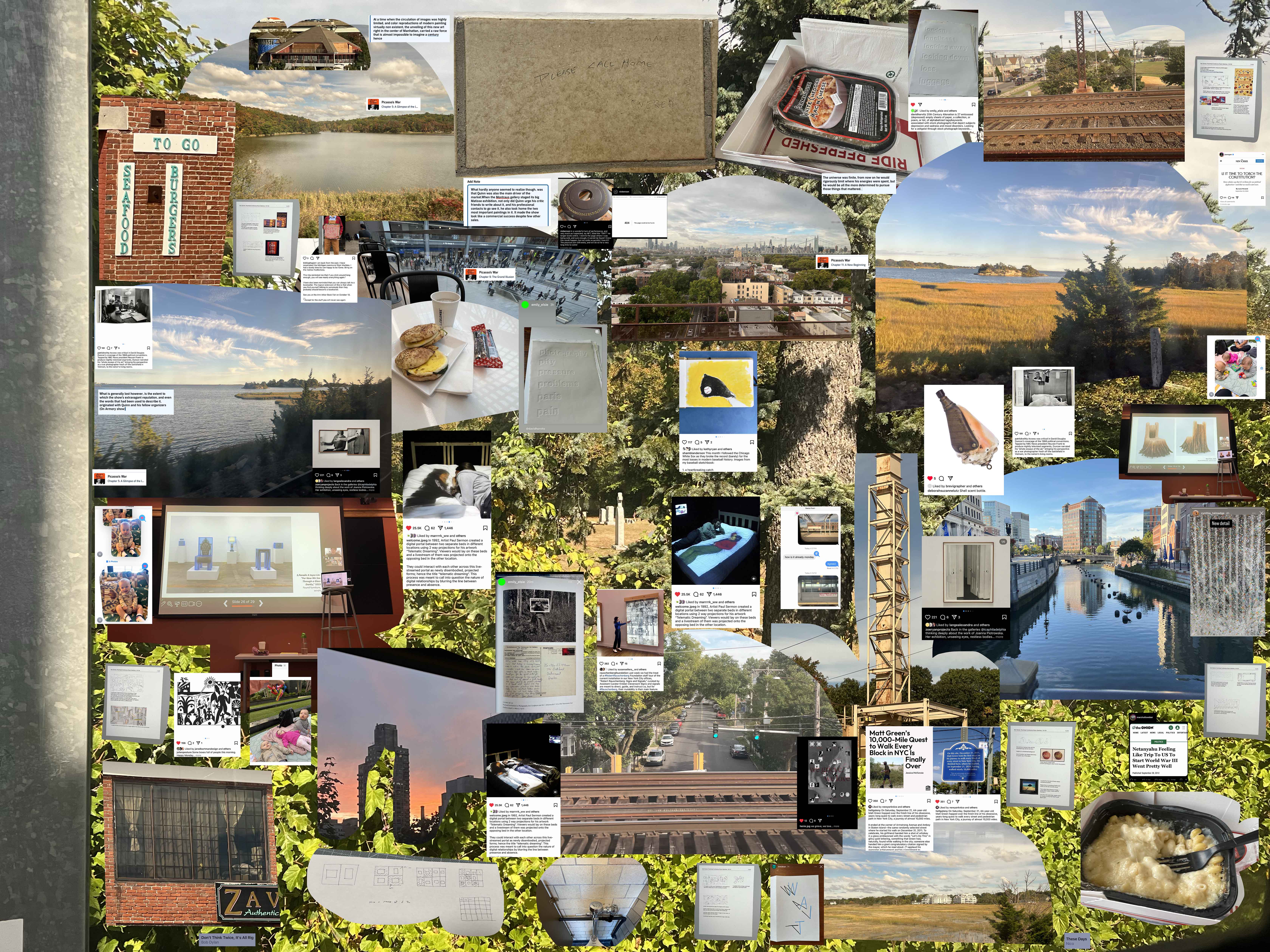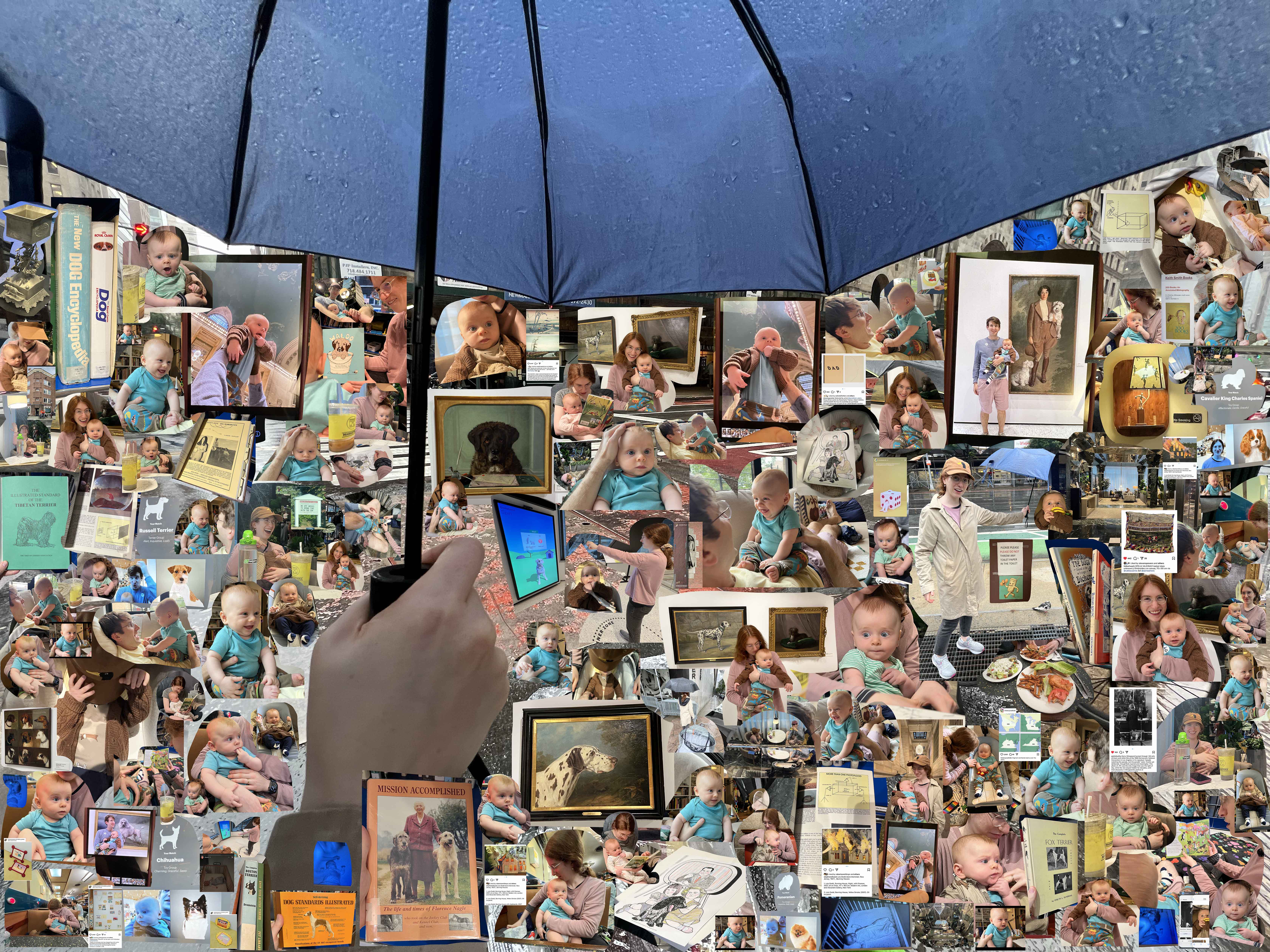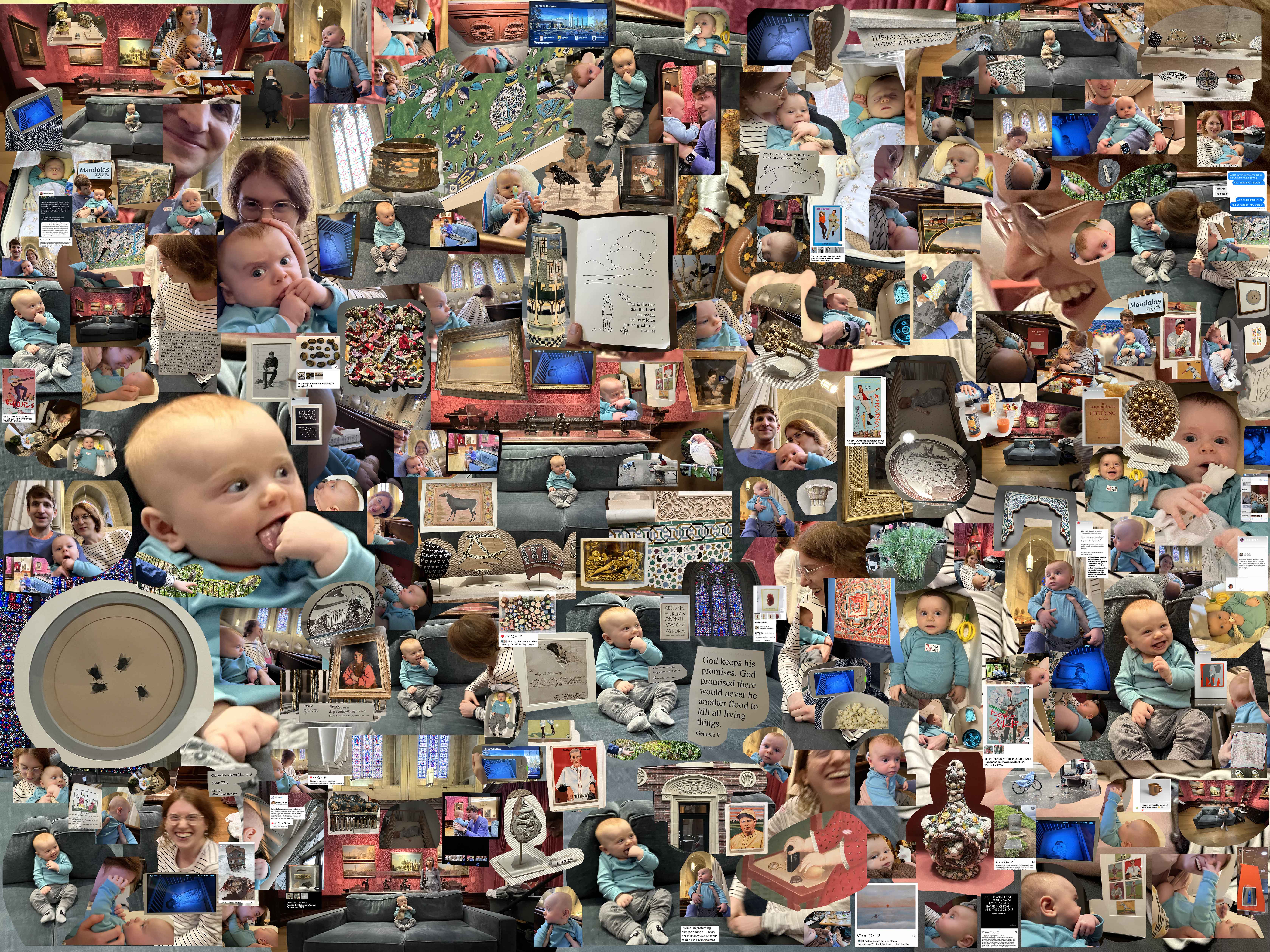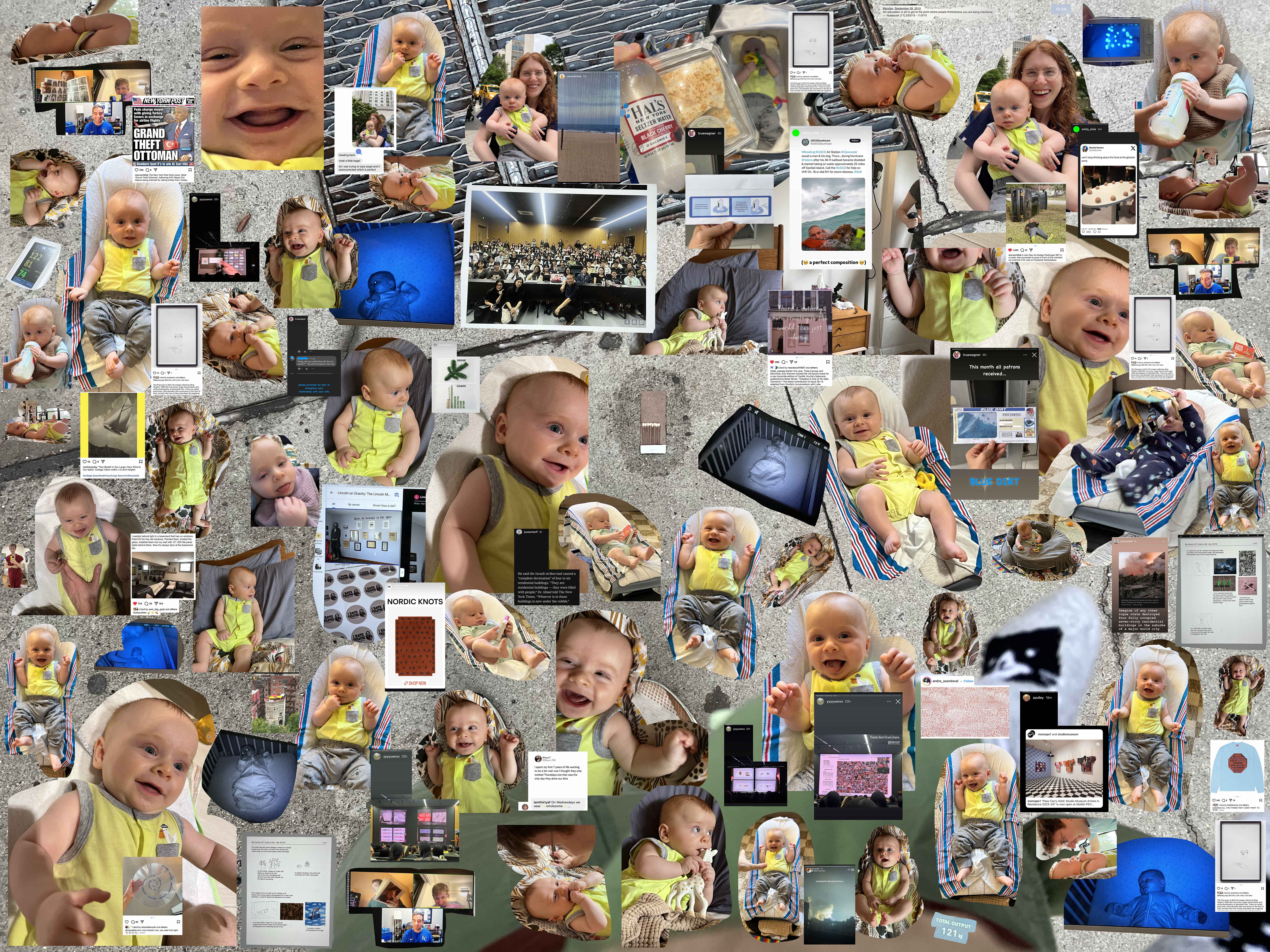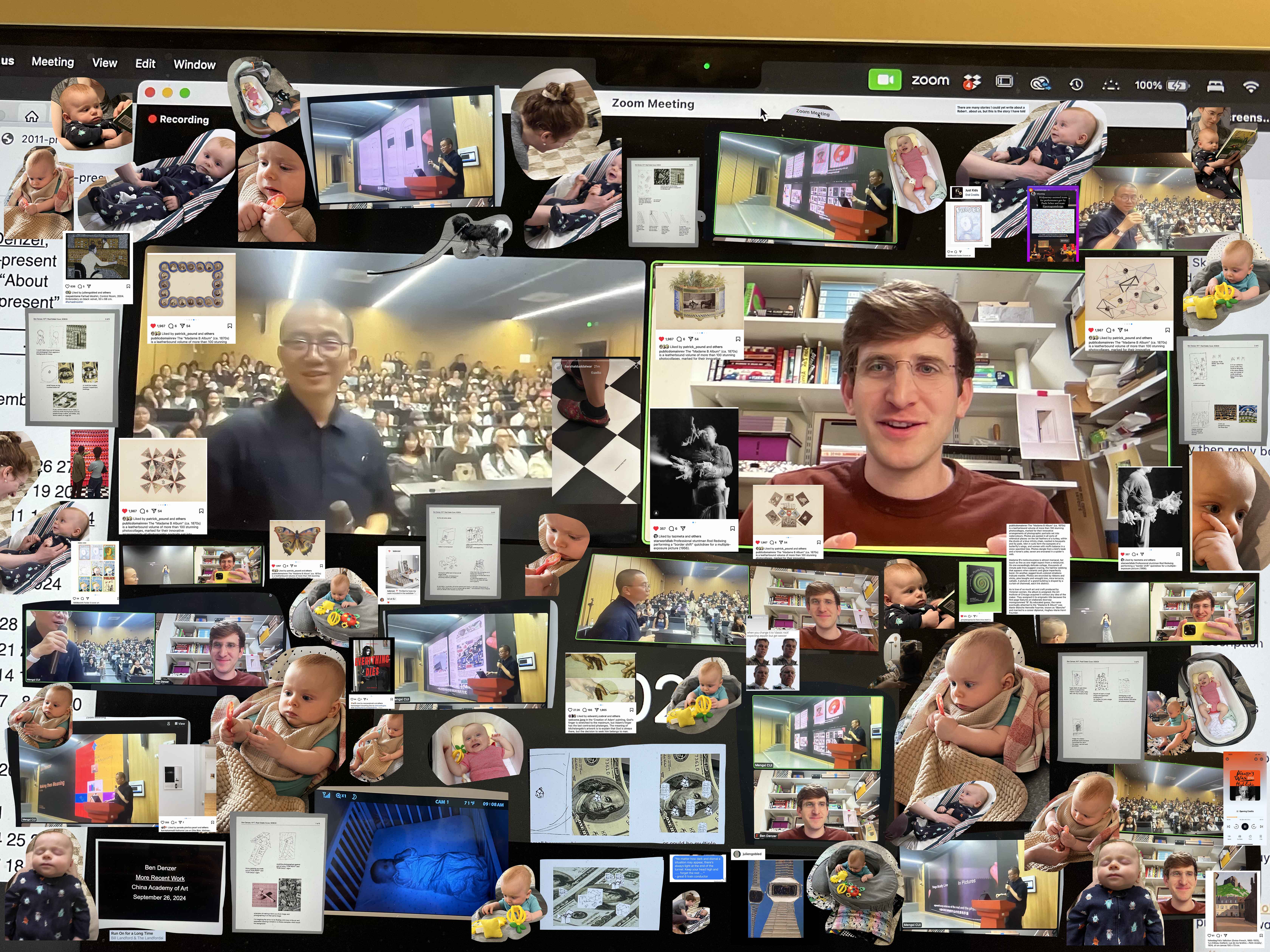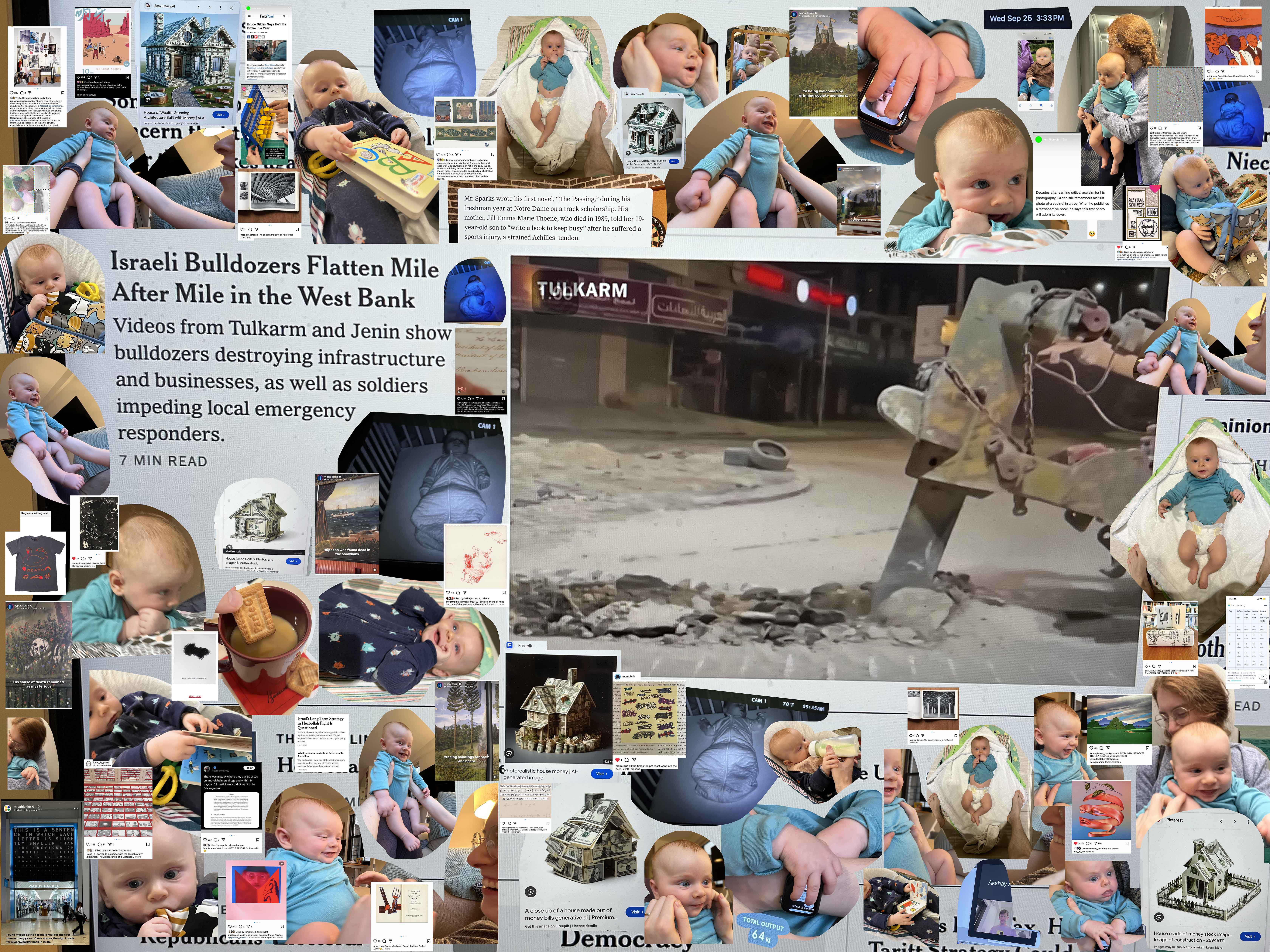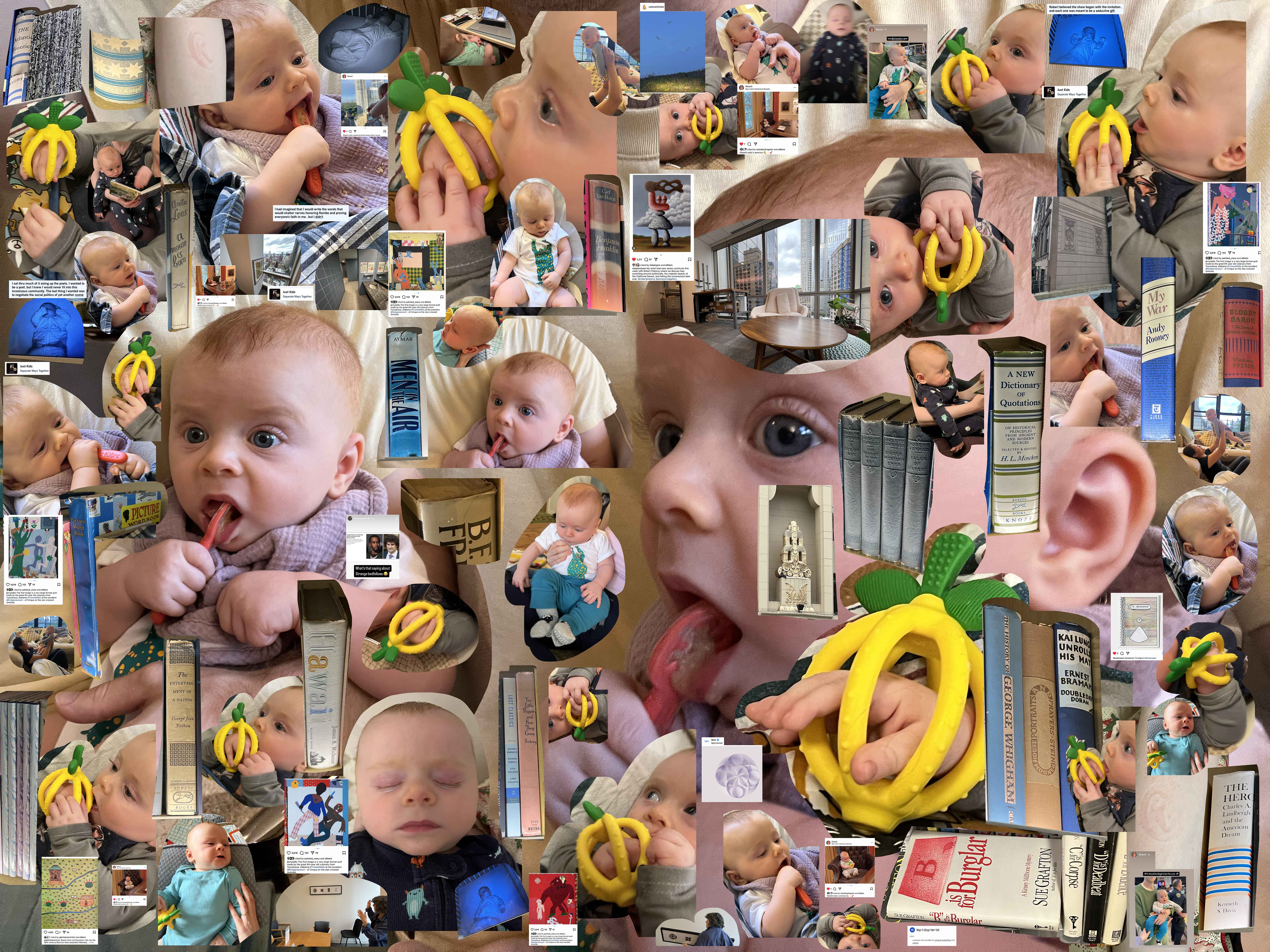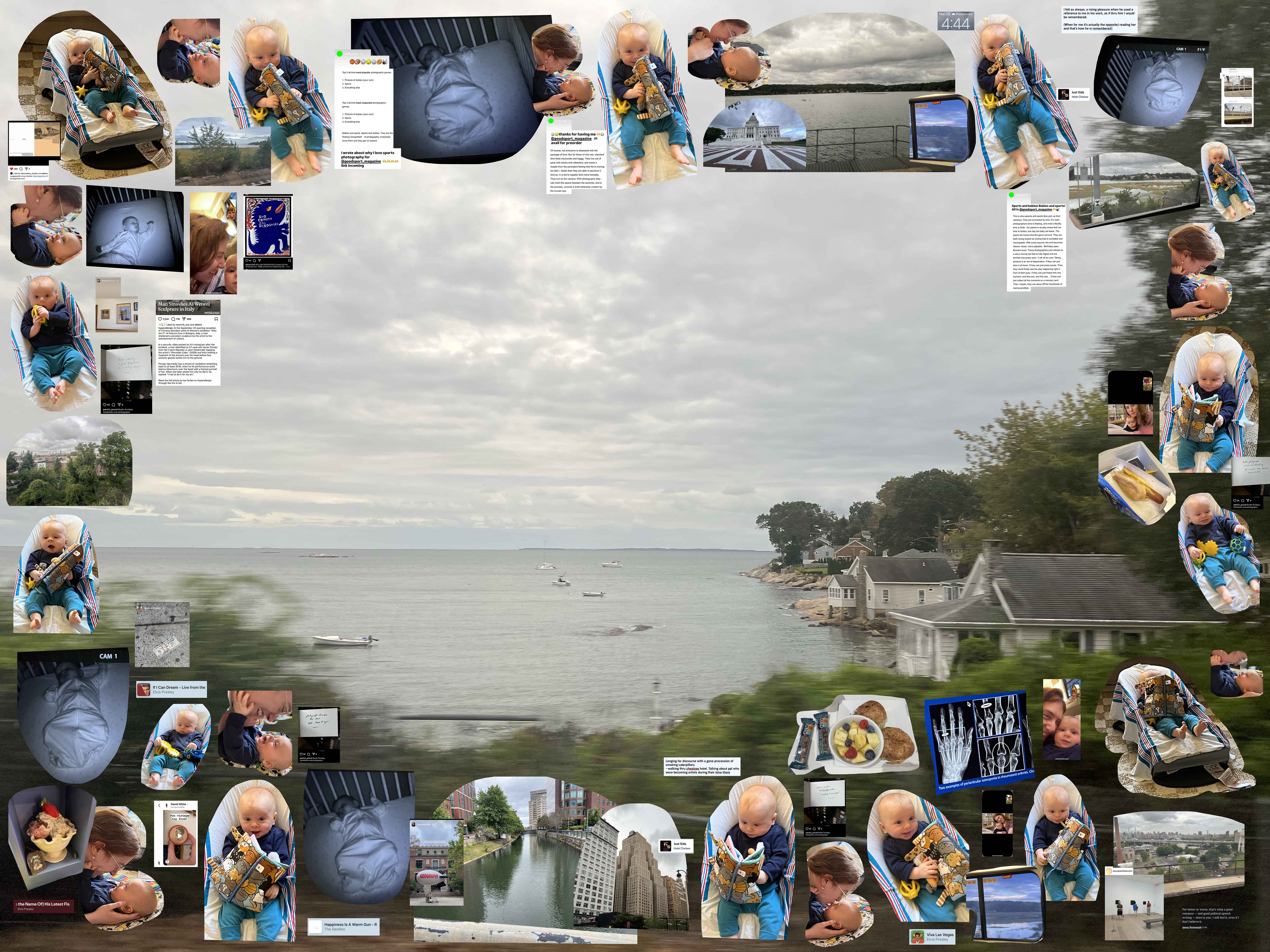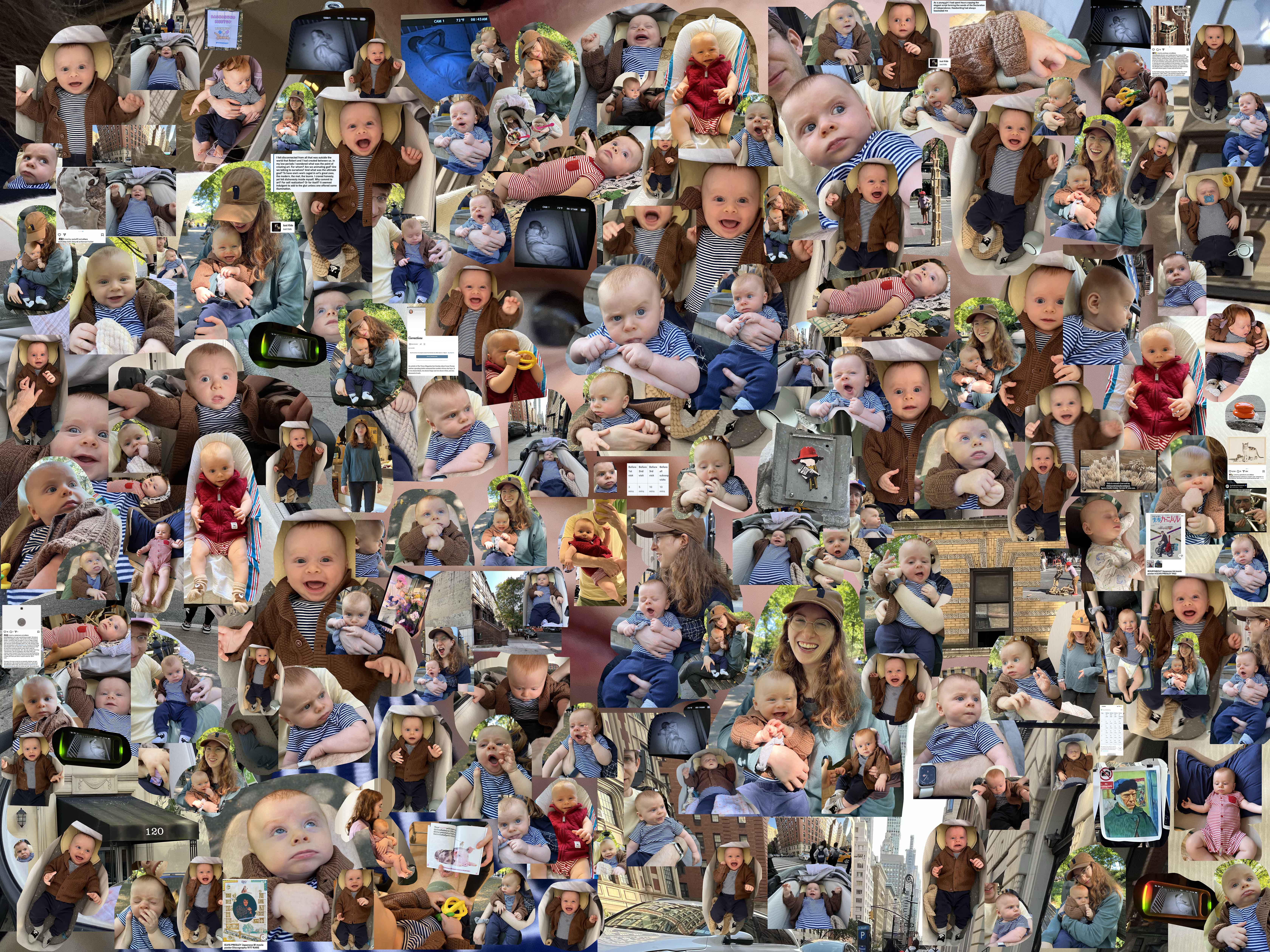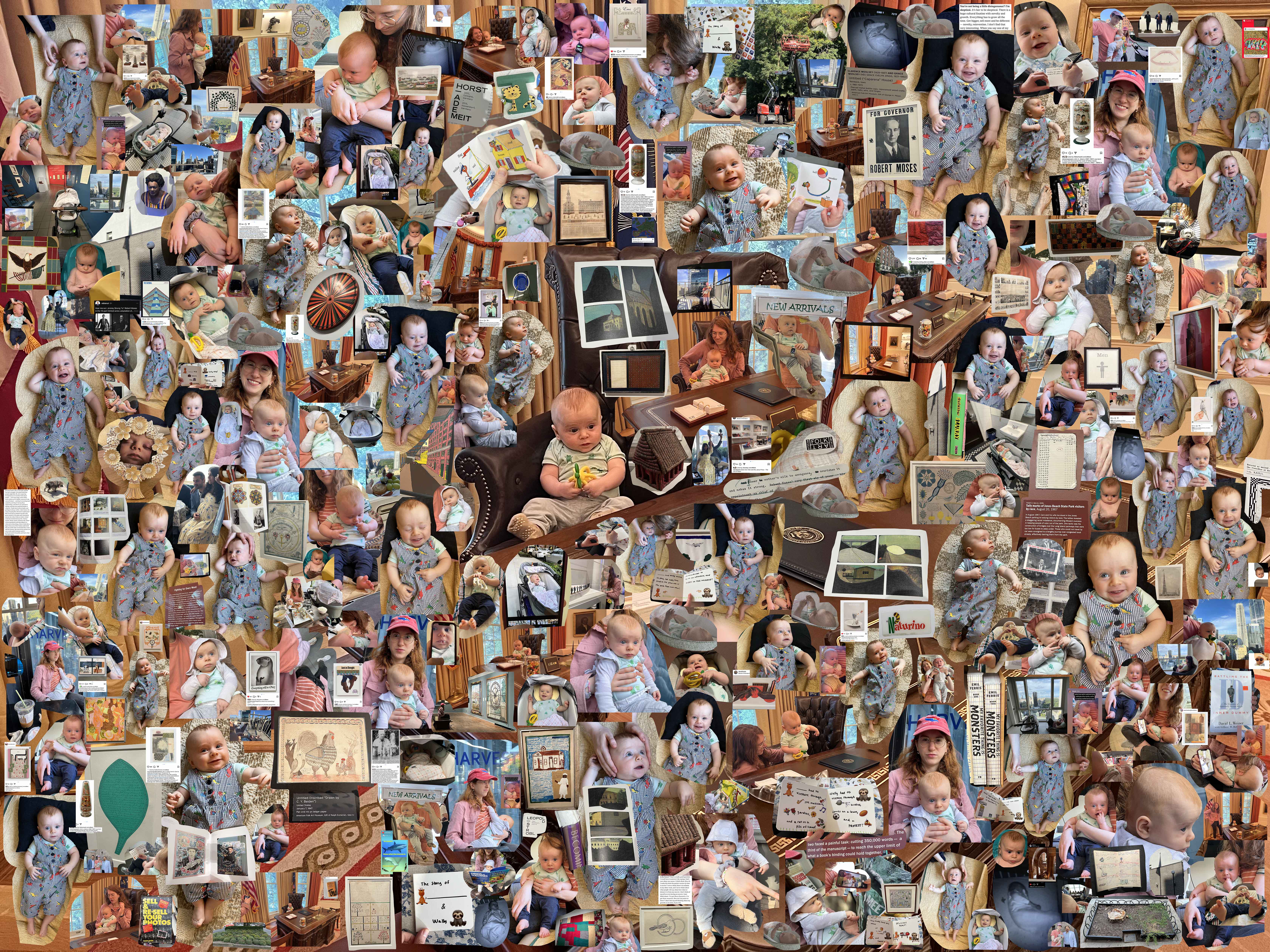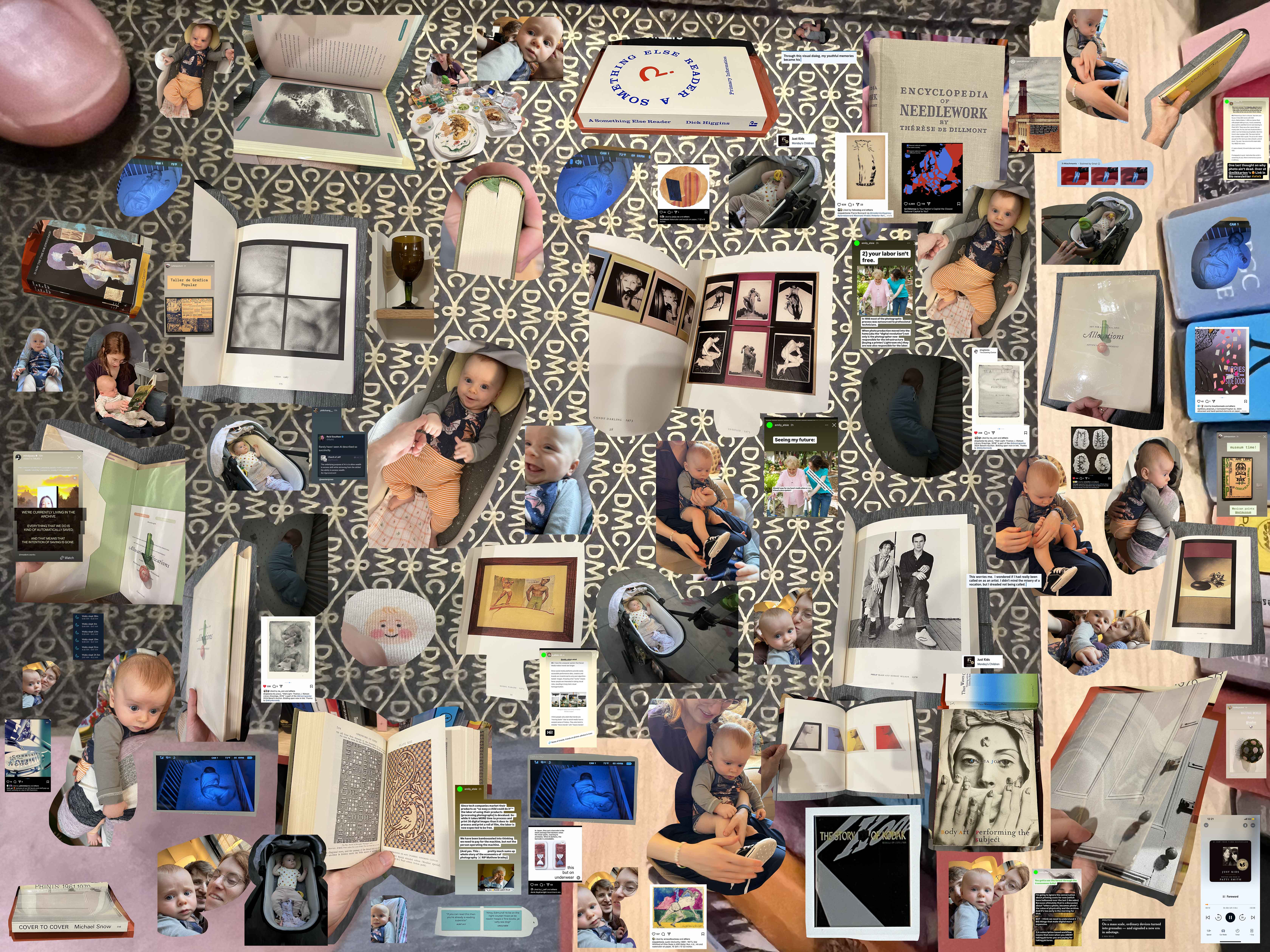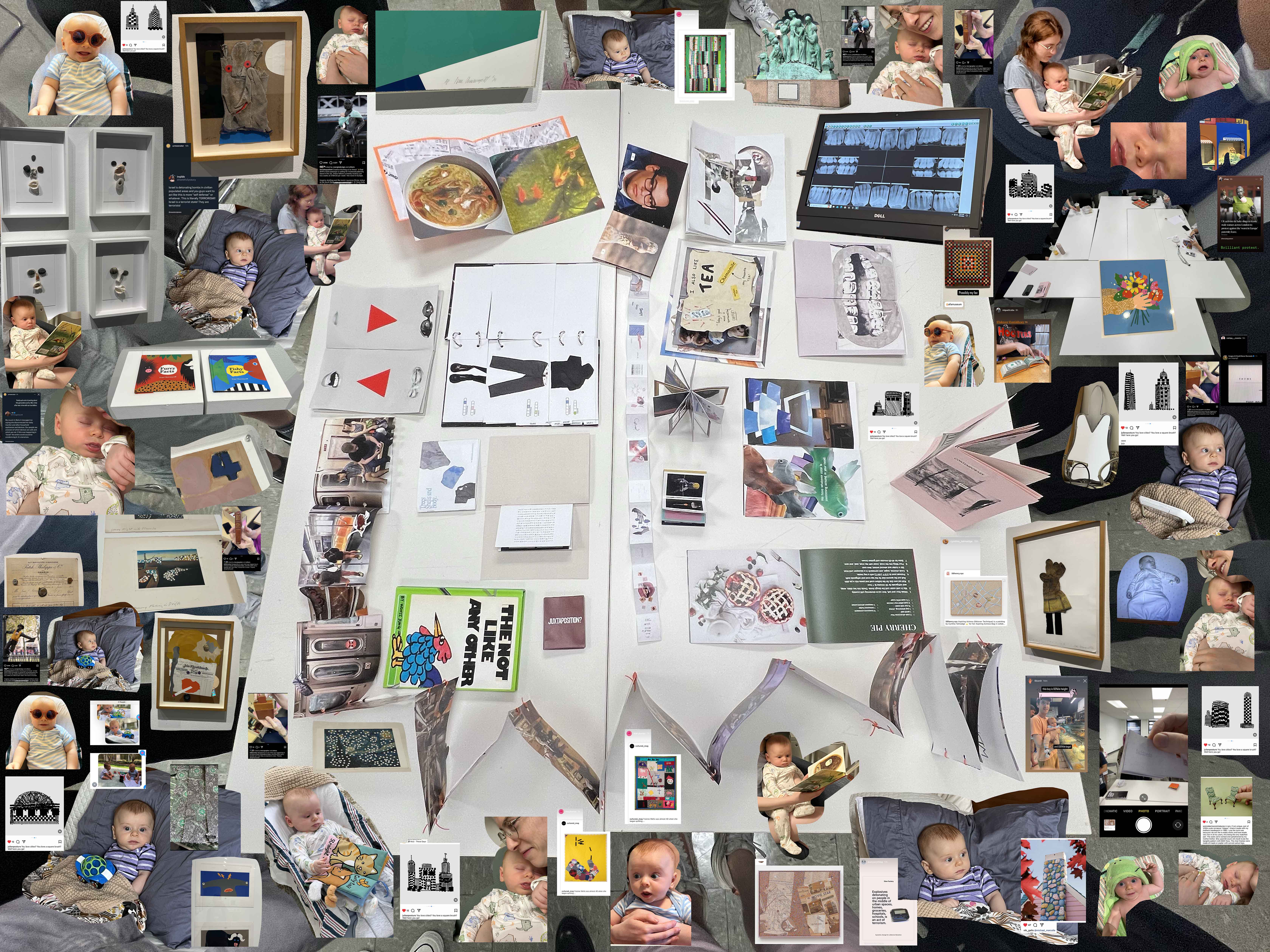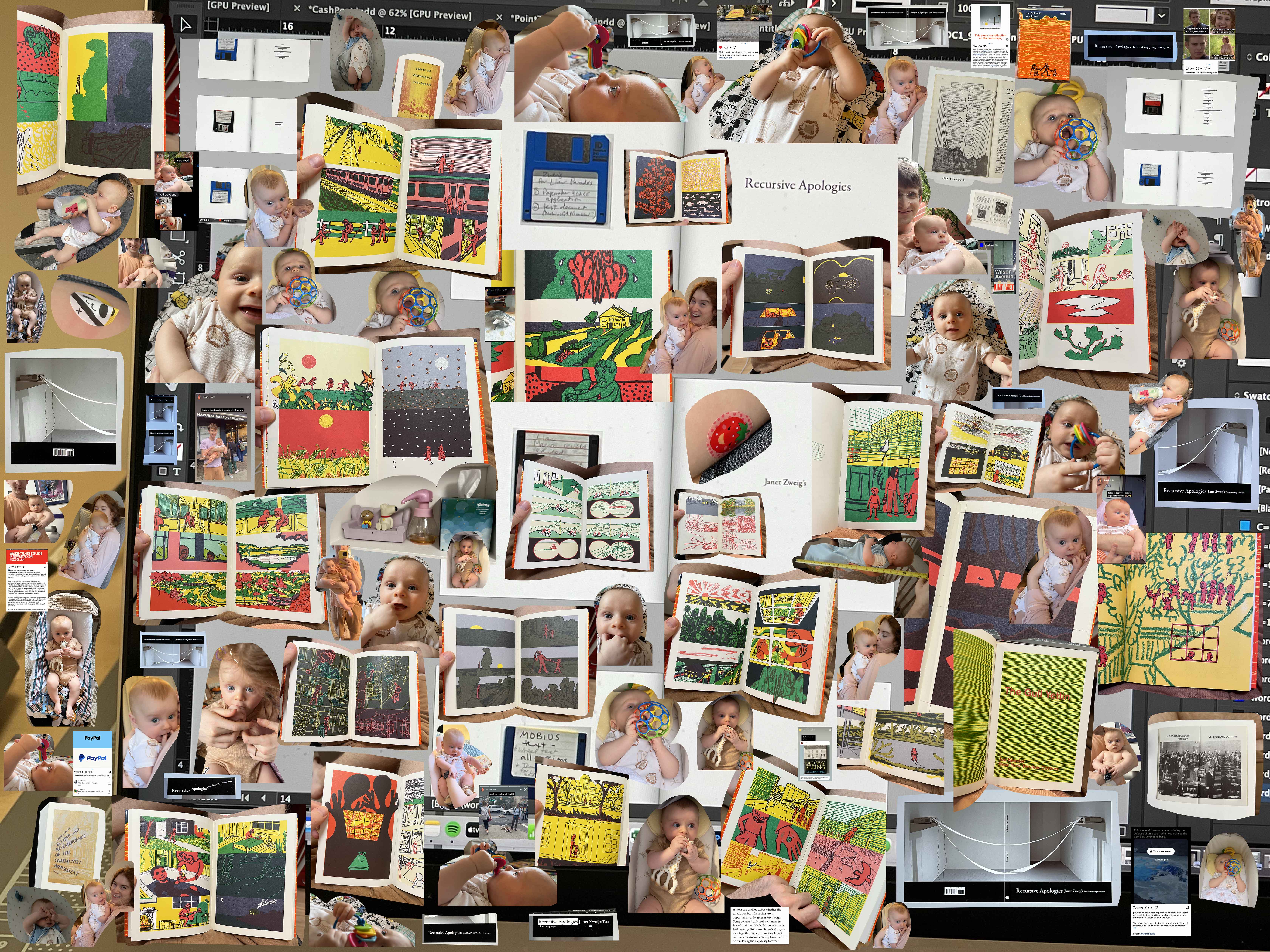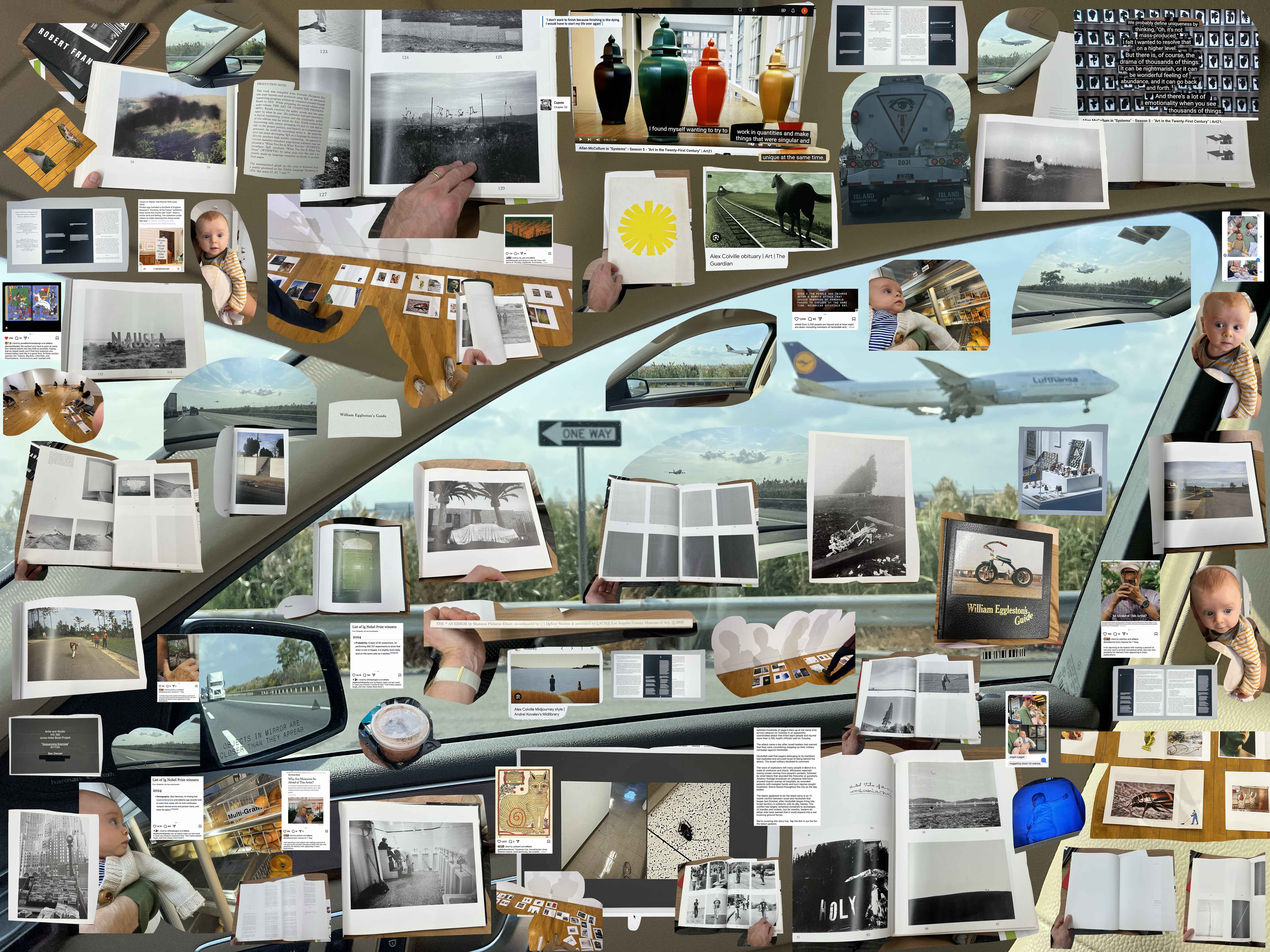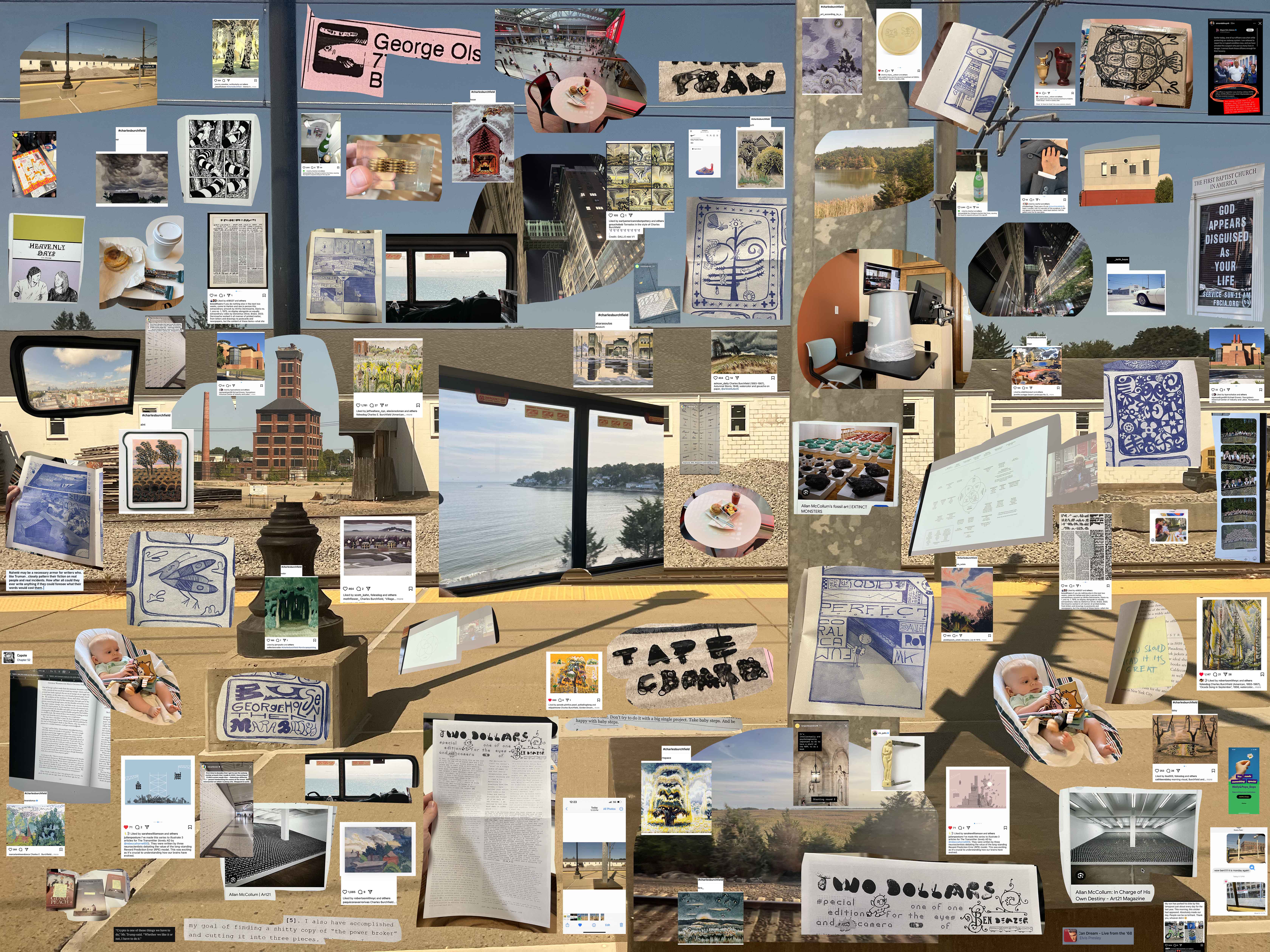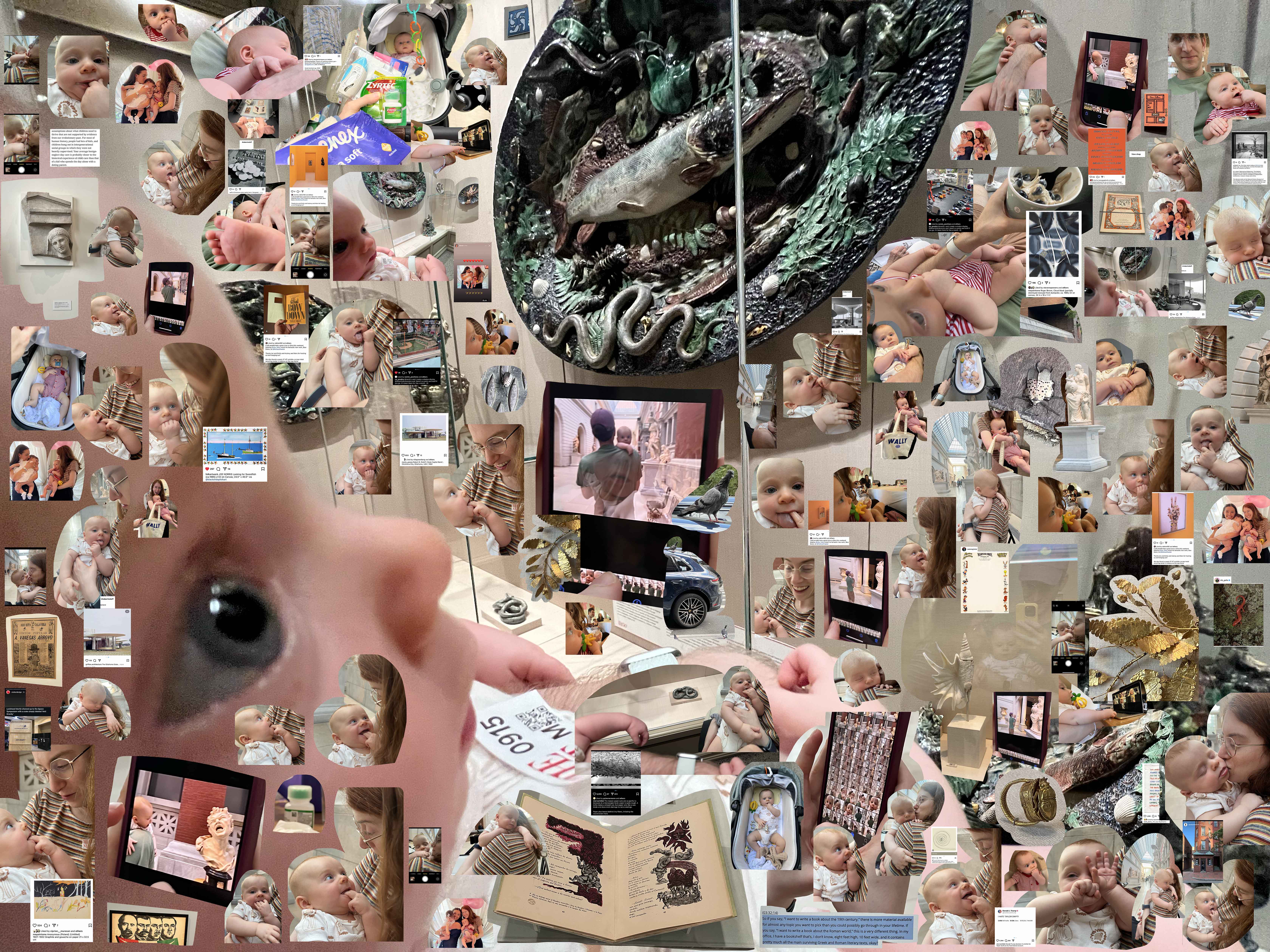Friday, October 4, 2024
Creation and destruction are two sides of the same coin, no matter how small that coin becomes.
— "Inge Oosterhoff on the human history of the microchip," @pioneerworks
Thursday, October 3, 2024
Due to Hurricane Helene, North and South Carolina have experienced widespread internet outages. As a result, people are buying out most of the physical media at Walmart.
— @starworldlab
Wednesday, October 2, 2024
In The Penguin Dictionary of Curious and Interesting Numbers (1987), David Wells commented that 39 "appears to be the first uninteresting number", a fact that made it "especially interesting", and thus 39 must be simultaneously interesting and dull.
— Wikipedia, "Interesting number paradox," via @depthsofwikipedia
Tuesday, October 1, 2024
And the numbers are now saying in the first 50 years that 90% of everybody was dead, and that the number of people has increased as well as far as our estimates. We’re thinking it’s somewhere around 150 million people and 90% of them died. And with them, all their knowledge. Just, I mean, imagine the moment where who dies when things get bad? It’s the young and the old. So all the knowledge keepers die suddenly. The children die. This next generation that’s half taught and now completely demoralized thinking that this is a spiritual attack, that their gods hate them, that the only way out of it is to accept this new Christianity. But they don’t want to have to bring kids into this world where everybody’s dying. And even if they do, they can’t teach them what the old people were going to teach them because the old people are gone and didn’t finish the transmission. So in a single terrible moment in human history, the generation loses all their knowledge. So a lot of the things these people knew just blipped out.
— Ed Barnhart, "Ed Barnhart: Maya, Aztec, Inca, and Lost Civilizations of South America | Lex Fridman Podcast #446"
Monday, September 30, 2024
At a time when the circulation of images was highly limited, and color reproductions of modern painting virtually non existent, the unveiling of this new art right in the center of Manhattan, carried a raw force that is almost impossible to imagine a century hence. ... What is generally lost, however, is the extent to which the show's extravagant reputation—and even the words that have been used to describe it—originated with Quinn and his fellow organizers.
— Hugh Eakin, Picasso's War: How Modern Art Came to America
Sunday, September 29, 2024
Smith has been making books since 1967 that range from artist books, poetry and textbooks to dictionaries. He has made over 150 one-of-a-kind artists books, most of which are in his own collection and seen by only a handful of people.
— Description of 200 Books: An Annotated Bibliography, keithsmithbooks.com
Saturday, September 28, 2024
God keeps his promises. God promised there would never be another flood to kill all living things.
Genesis 9
— Holy Communion for Children
Friday, September 27, 2024
Imagine if any other rogue state destroyed four fully occupied seven-story residential buildings in the suburbs of a major world city
— @jcoescharff
Thursday, September 26, 2024
There are many stories I could yet write about Robert, about us, but this is the story I have told.
— Patti Smith, Just Kids
Wednesday, September 25, 2024
Mr. Sparks wrote his first novel, “The Passing,” during his freshman year at Notre Dame on a track scholarship. His mother, Jill Emma Marie Thoene, who died in 1989, told her 19-year-old son to “write a book to keep busy” after he suffered a sports injury, a strained Achilles' tendon.
— Addie Morfoot, "At Home with Nicholas Sparks," The New York Times
Tuesday, September 24, 2024
I had imagined that I would write the words that would shatter nerves, honoring Rimbaud and proving everyone's faith in me, but I didn't.
— Patti Smith, Just Kids
Monday, September 23, 2024
These photographers are witness to a story moving too fast to fully digest and are terrified that pretty soon it will all be over. Taking pictures is an act of desperation.
— @emily_elise on parents and sports fans
Sunday, September 22, 2024
I felt disconnected from all that was outside the world that Robert and I had created between us. In my low periods, I wondered what was the point of creating art. For whom? Are we animating God? Are we talking to ourselves? And what was the ultimate goal? To have one's work caged in art's great zoos— the Modern, the Met, the Louvre? I craved honesty, yet found dishonesty in myself. Why commit to art? For self-realization, or for itself? It seemed indulgent to add to the glut unless one offered illumination.
— Patti Smith, Just Kids
Saturday, September 21, 2024
The two faced a painful task: cutting 350,000 words — a third of the manuscript— to reach the upper limit of what a book's binding could hold together.
— Wall text, "Robert Caro's The Power Broker at 50," The New-York Historical Society
Friday, September 20, 2024
Through this visual dialog my youthful memories became his.
— Patti Smith, Just Kids
Thursday, September 19, 2024
Explosives detonating on people in the middle of urban spaces, homes, groceries, hospitals, schools
— @jewishvoiceforpeace via @everyverything
Wednesday, September 18, 2024
the gull yettin is an essential read for you
— George Olsen, special edition of "Two Dollars"
Tuesday, September 17, 2024
But there is, of course, the drama of thousands of things. It can be nightmarish, or it can be a wonderful feeling of abundance, and it can go back and forth. And there's a lot of emotionality when you see thousands of things.
— Allan McCollum, "Allan McCollum in "Systems" - Season 5 - "Art in the Twenty-First Century" | Art21"
Monday, September 16, 2024
For the eyes and camera of
— George Olsen, special edition of "Two Dollars"
Sunday, September 15, 2024
So if you say, “I want to write a book about the 19th century,” there is more material available for almost any topic you want to pick than you could possibly go through in your lifetime. If you say, “I want to write a book about the Roman world,” this is a very different thing. In my office, I have a bookshelf that’s, I don’t know, eight feet high, 10 feet wide, and it contains pretty much all the main surviving Greek and Roman literary texts.
— Gregory Aldrete, "Gregory Aldrete: The Roman Empire – Rise and Fall of Ancient Rome | Lex Fridman Podcast #443"
